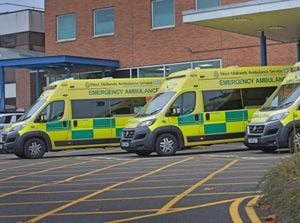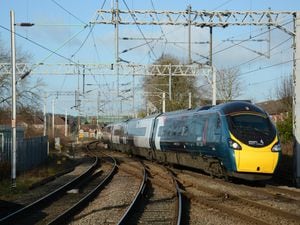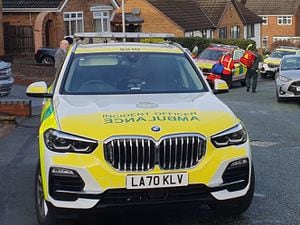Serious emergency calls to be downgraded in bid to boost ambulance response times
Some of the most serious emergency calls are to be downgraded by West Midlands Ambulance Service in a bid to cut response times to heart attacks and strokes.

The service – which has some of the worst handover delays in the country – will be taking part in a NHS trial which will see serious "Category 2" calls re-assessed.
The category – which includes strokes, heart attacks, sepsis and burns – will be reviewed by clinicians to find out how quickly paramedics need to respond to an emergency in the area – and whether an ambulance is required at all.
But while the NHS chiefs have said the move will prioritise response times to time-sensitive emergencies such as heart attacks and strokes, which should be responded to within 40 minutes, it will still mean many 999 calls will not be treated as such.
The move, which is also being trialled by London Ambulance Service, is expected to affect around 40 per cent of ‘category 2’ 999 calls, the NHS said. The results of the trial will then be used to establish whether some of the ‘least’ serious ‘category 2’ emergencies – such as some types of burns – can be indefinitely downgraded into ‘category 3’ – which are ‘urgent’ but not immediately life-threatening.
A spokesperson for the NHS said: “This trial, supported by clinicians, will start in two areas of the country with the aim of speeding up ambulance response times for the sickest patients who need care and treatment most quickly – in a similar way to how category 3 and 4 calls currently work.
"The proposal being tested will see a clinician call and assess those patients who could be treated through other services, such as a community response."
Last month the region’s ambulance service admitted that long handover delays had been at “catastrophic” levels for 12 months and showing no signs of improving, with the delays costing the service £4.29 million a month with every hour costing £150.
The consequences of ambulances being stuck outside hospital, known as stacking, are dire with some patients waiting as long as 19 hours outside and paramedics being able to get to emergencies.
Helen Morgan, Lib Dem MP for North Shropshire, said: "This new trial is the ambulance service attempting to put plasters on the gaping wound the Government has opened by failing to deal with the ambulance crisis.
“Ambulance response times in Shropshire have been dangerously long for more than a year and are expected to get even worse over the winter.
“Therefore it is right that West Midlands Ambulance Service focuses its resources on saving as many lives as possible, but it should never have been forced into a position where this is necessary.
“Far too many people have already died waiting for an ambulance to arrive and yet the Conservative Government is continuing to ignore a grave situation and leaving paramedics to deal with the consequences.
“Rishi Sunak must act quickly to fix social care, free up hospital beds and get the flow back in hospitals so that ambulances can get back on the road instead of queueing outside A&E.”
Addressing a WMAS board meeting in October, nursing director Mark Docherty said: "When there is stacking no ambulances are immediately available to respond. This means patients with critical medical emergencies do not get the response they need and may suffer significant harm or death.
"The issue of patient handover delays shows little sign of improvement and the impact of this means we are keeping patients waiting for very long periods for an ambulance response."
He added: "As a consequence, there is an increase in the numbers of serious incidents being reported and investigated. The lost hours for the year to date has plateaued across August and September, but early indicators for October suggest a worsening position."
In the Black Country Dudley’s Russells Hall Hospital and Wolverhampton’s New Cross Hospital had the worst handover times. In September 238 patients Russells Hall Hospital were forced to wait outside up to hours, 185 between two and three hours, 102 between three and four hours and two patients were forced to wait between 18 and 19 hours.
At New Cross Hospital 207 patients were forced to wait between one and two hours, 96 between two and three hours and 40 between three and four hours.
WMAS executive medical director Dr Alison Walker told board members of the ambulance service trust the problem could get worse in the months ahead.
She said: “We remain extremely concerned about handover delays as winter approaches and the cold weather, especially if it snows, will create even more delays.”





